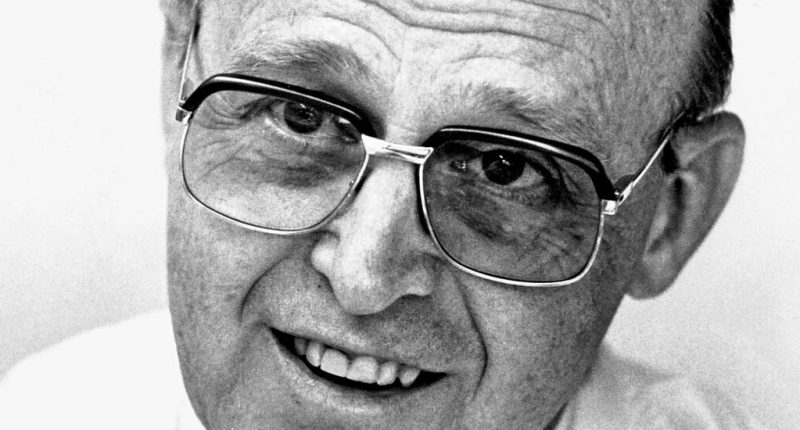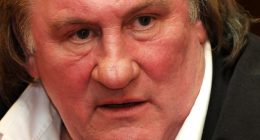Guy Alexandre, a Belgian transplant surgeon who in the 1960s risked professional censure by removing kidneys from brain-dead patients whose hearts were still beating — a procedure that greatly improved organ viability while challenging the medical definition of death itself — died on Feb. 14 at his home in Brussels. He was 89.
His son, Xavier, confirmed the death.
Dr. Alexandre was just 29 and fresh off a yearlong fellowship at Harvard Medical School when, in June 1963, a young patient was wheeled into the hospital where he worked in Louvain, Belgium. She had sustained a traumatic head injury in a traffic accident, and despite extensive neurosurgery, doctors pronounced her brain dead, though her heart continued to beat.
He knew that in another part of the hospital, a patient was suffering from renal failure. He had assisted on kidney transplants at Harvard, and he understood that the organs began to lose viability soon after the heart stops beating.
Dr. Alexandre pulled the chief surgeon, Jean Morelle, aside and made his case. Brain death, he said, is death. Machines can keep a heart beating for a long time with no hope of reviving a patient.
His argument went against centuries of assumptions about the line between life and death, but Dr. Morelle was persuaded.
They removed a kidney from the young patient, shut off her ventilator and completed the transplant within a few minutes. The recipient lived another 87 days — a significant accomplishment in its own right, given that the science of organ transplants was still evolving at the time.
Over the next two years, Dr. Alexandre and Dr. Morelle quietly performed several more kidney transplants using the same procedure. Finally, at a medical conference in London in 1965, Dr. Alexandre announced what he had been doing.
“There has never been and there never will be any question of taking organs from a dying person who has a ‘nonreasonable chance of getting better or resuming consciousness,’” he told the gathering. “The question is of taking organs from a dead person. The point is that I do not accept the cessation of heartbeat as the indication of death.”
Others in the room, including some of the greatest names in the organ transplant field, were less sure, and said so.
“Any modification of the means of diagnosing death to facilitate transplantation will cause the whole procedure to fall into disrepute,” Roy Calne, a pioneering British transplant surgeon, said during the conference. (Dr. Calne died in January.)
Dr. Alexandre remained steadfast, and he offered a set of criteria for determining if a patient was brain dead. In addition to suffering a traumatic brain injury, the patient should have dilated pupils and dropping blood pressure, exhibit no reflexes, have no capacity to breathe without a machine, and show no signs of brain activity.
Within a few years, Dr. Calne and others began to come around to Dr. Alexandre’s argument. In 1968, the Harvard Ad Hoc Committee, a group of medical experts, largely adopted Dr. Alexandre’s criteria when it declared that an irreversible coma should be understood as the equivalent of death, whether the heart continues to beat or not.
Today, Dr. Alexandre’s perspective is widely shared in the medical community, and removing organs from brain-dead patients has become an accepted practice.
“The greatness of Alexandre’s insight was that he was able to see the insignificance of the beating heart,” Robert Berman, an organ-donation activist and journalist, wrote in Tablet magazine in 2019.
Guy Pierre Jean Alexandre was born on July 4, 1934, in Uccle, Belgium, a suburb of Brussels. His father, Pierre, was a government administrator, and his mother, Marthe (Mourin) Alexandre, was a personal assistant.
He entered the University of Louvain in 1952 to study medicine. After completing his studies in 1959, he remained at the university to train as a transplant surgeon.
He married Eliane Moens in 1958. She died in October. Along with their son, Dr. Alexandre’s survivors include their daughters, Anne, Chantal, Brigitte and Pascale; 17 grandchildren; and 13 great-grandchildren.
By the late 1950s the field of transplant surgery was evolving quickly. Among the leading research centers was Peter Bent Brigham Hospital (now part of Brigham and Women’s Hospital) in Boston, one of Harvard’s teaching facilities, where the first kidney transplant was performed in 1954.
Dr. Alexandre arrived at Brigham in 1962, overlapping by a few weeks with Dr. Calne, who was wrapping up his own fellowship term. Both of them worked under Joseph E. Murray, who in 1990 shared the Nobel Prize in Physiology or Medicine for his work in transplant surgery.
Dr. Alexandre noticed that before Dr. Murray removed an organ from a brain-dead patient, he would turn off the respirator and wait until the heart stopped beating. This fulfilled a conventional definition of death, but at a significant cost to the organ.
“They viewed their brain-dead patients as alive, yet they had no qualms about turning off the ventilator to get the heart to stop beating before they removed kidneys,” Dr. Alexandre told Mr. Berman for his Tablet article. “In addition to ‘killing’ the patient, they were giving the recipients damaged kidneys.”
Dr. Alexandre returned to the University of Louvain after a year, intent on putting his convictions into practice.
He made several further contributions to the field of transplant surgery. In the early 1980s, he developed a method to remove certain antibodies from a kidney so that it could be placed inside a patient with an otherwise incompatible blood type.
And, in 1984, he performed one of the world’s first successful xenotransplants, the transfer of an organ from one species to another. In this case, he moved a pig kidney into a baboon.
Also Read More: World News | Entertainment News | Celebrity News









